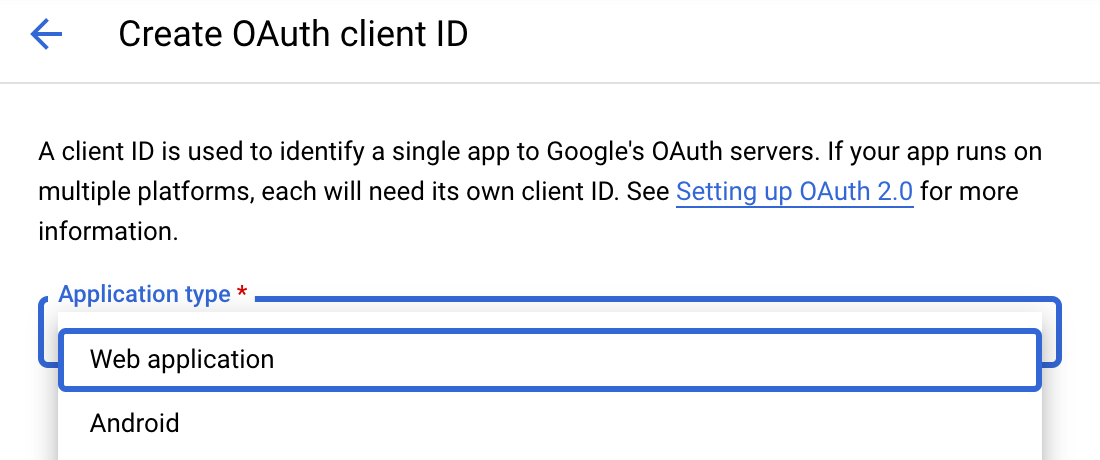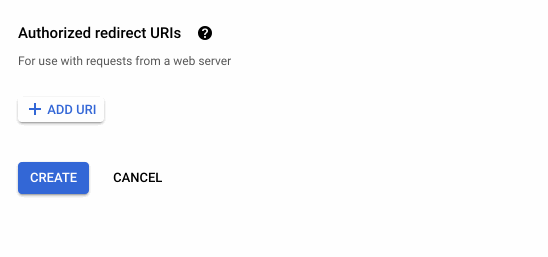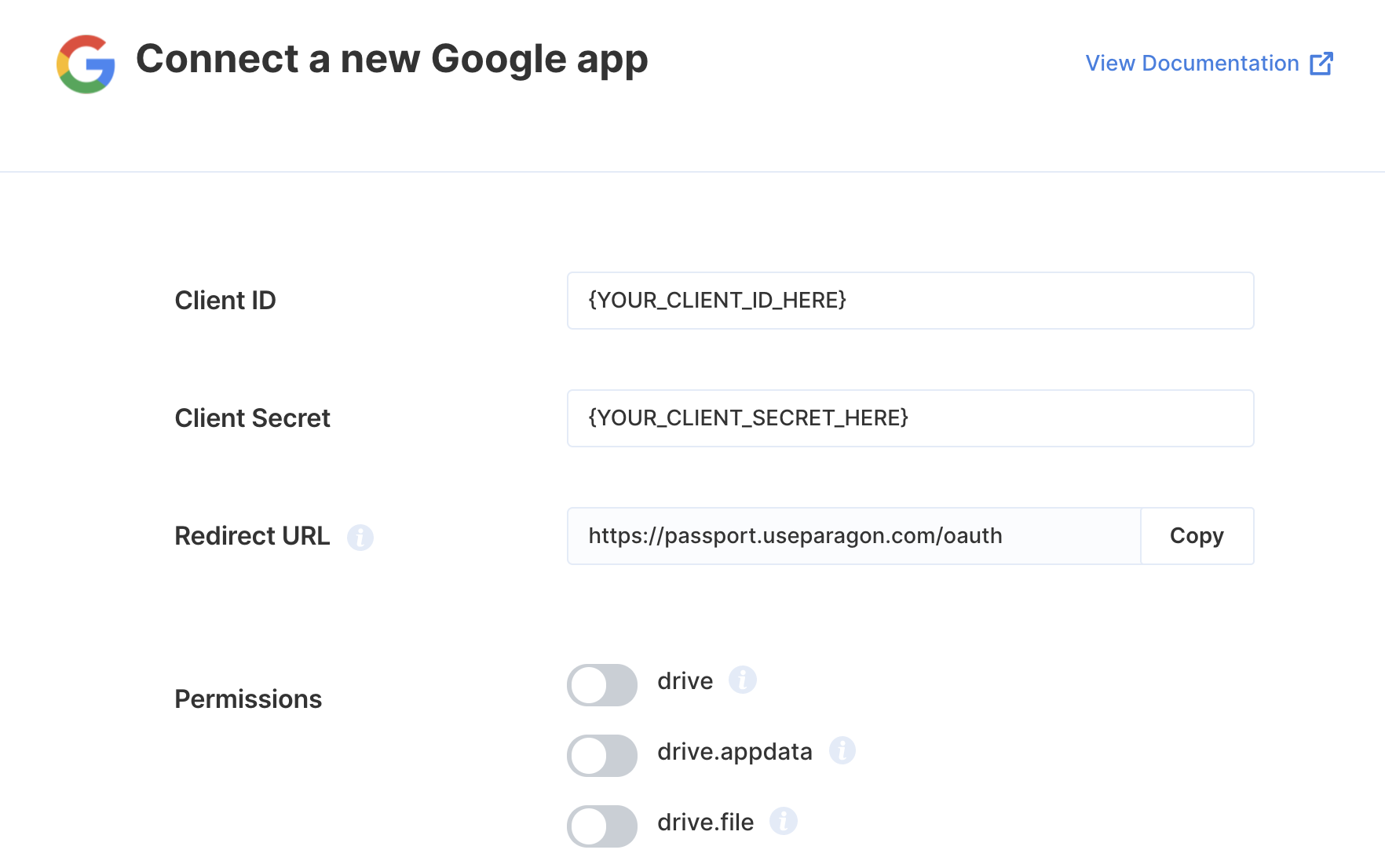Setup Guide
You can find your Google app credentials by visiting your Google Cloud Console dashboard. You’ll need the following information to set up your Google App with Paragon Connect:- Client ID
- Client Secret
- Scopes Requested
Add the Redirect URL to your Google app
Paragon provides a redirect URL to send information to your Google app. To add the redirect URL to your Google app:- Copy the link under “Redirect URL” in your integration settings in Paragon. The Redirect URL is:
- In your Google Cloud Console dashboard, navigate to APIs & Services > Credentials in the sidebar.
- Press ”+ Create Credentials”, then select OAuth client ID.
- Select “Web application” from the Application type drop-down menu.
Note: You’ll need to configure Google’s consent screen for access to Client ID and Client Secret if you haven’t already.

- Under Authorized redirect URIs, press the ”+ Add URI” button.
- Paste-in the redirect URL from Paragon.
- Press the blue “Create” button.

Enable Google Calendar API in Google Cloud Console Dashboard
- In your Google Cloud Console dashboard, navigate to APIs & Services > Library in the sidebar.
- Search for “Google Calendar API” from the API Library.
- Select the “Google Calendar API”.
- Press the blue “Enable” button to enable the API for your application.

Add your Google app to Paragon
- Select Google Calendar from the Integrations Catalog.
- Under Integrations > Connected Integrations > Google Calendar > App Configuration > Configure, fill out your credentials from the end of Step 1 in their respective sections:
- Client ID: Found at the end of Step 1.
- Client Secret: Found at the end of Step 1.
- Permissions: Select the scopes you’ve requested for your application. For a list of recommended scopes, please view this integration within your Paragon dashboard. View dashboard. They should begin with
calendar.
Note: Leaving the Client ID and Client Secret blank will use Paragon development keys.

Connecting to Google Calendar
Once your users have connected their Google Calendar account, you can use the Paragon SDK to access the Google Calendar API on behalf of connected users. See the Google Calendar REST API documentation for their full API reference. Any Google Calendar API endpoints can be accessed with the Paragon SDK as shown in this example.Building Google Calendar workflows
Once your Google Calendar account is connected, you can add steps to perform the following actions:- Create Event
- Update Event
- List Events
- Get Event by ID
- Delete Event
- Get Contacts
- Search Contacts
- List Directory People
- Search Directory People
- List Other Contacts
- Search Other Contacts
- Get Availability
{{ to invoke the variable menu.

Using Webhook Triggers
Webhook triggers can be used to run workflows based on events in your users’ Google Calendar. For example, you might want to trigger a workflow whenever events are created to sync your users’ Google Calendar events to your application in real-time.
- New Event
- Event Updated
- Event Cancelled
- Event Started
- Event Ended
Publishing your Google Calendar application
Setting up a Redirect Page in your app
Your Google Calendar integration requires a Redirect Page hosted in your application to support verification of your application by Google. The Redirect Page should be implemented as follows:- Receives a
GETrequest with a number of query parameters. - Redirect to
https://passport.useparagon.com/oauthwith the same query parameters.
Updating the allowed Redirect URL
If you were previously testing withhttps://passport.useparagon.com/oauth as your Google Calendar Redirect URL, you will need to update this value after implementing a Redirect Page:
- Log into your Google Cloud Console dashboard and select your application.
- Navigate to APIs & Services > Credentials and select the credentials you use with Paragon.
- Under Authorized redirect URIs, provide the URL of your Redirect Page.